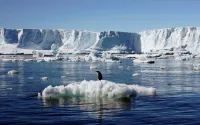23 May 2007The Sydney Morning HeraldJeremy Lovell
The United States is battling to stop next month's Group of Eight summit in Germany from pushing for urgent talks on a new deal to fight global warming after the Kyoto Protocol lapses in 2012.
In a draft of the final communique for the June 6-8 summit seen by Reuters, the Bush Administration wants references to the urgency of the climate crisis taken out as well as the need for a United Nations conference in Bali in December to open talks on a new global deal.
According to the draft, the US wants the following paragraphs deleted: "We firmly agree that resolute and concerted international action is urgently needed in order to reduce global greenhouse gas emissions and sustain our common basis of living.
"To this end we will, in the face of the UN Climate Change Conference at the end of this year, send a clear message on the further development of the international regime to combat climate change."
Environment ministers are due to meet in Bali from December 3 to 14. Britain and Germany are pushing for an agreement to begin talks on a successor treaty to Kyoto, extending and expanding its scope and membership.
Instead, the US wants the final G8 statement to say: "Addressing climate change is a long-term issue that will require global participation and a diversity of approaches to take into account differing circumstances."
The deletions are part of a concerted effort by the US, which rejected Kyoto in 2001 and has ever since tried to undermine it, to water down the tone and content of the G8 summit declaration.
Most references in the draft, dated April 2007, to targets and timetables to cut climate warming carbon emissions have met objections from Washington.
Negotiations to expand and extend Kyoto beyond 2012 are barely moving and diplomats hope that the G8 summit, in the Baltic resort of Heiligendamm, will agree on a declaration strong enough to revitalise the talks.
Failure in Germany could delay the process even further and risk leaving a post-Kyoto vacuum.
The US President, George Bush, told Reuters on Monday it was possible that G8 leaders would be able to reach agreement on some basic principles confronting global climate change, but he doubted there could be an effective approach to dealing with climate change globally without the participation of major polluters China and India.
Asked if he expected an agreement at the summit, Mr Bush said: "Too early to tell right now. I would hope so. I hope we can reach an agreement on some basic principles … I think we can reach agreement on principles."
He said he wanted to work with European countries, China and India to come up with a way forward that reduces greenhouse gases blamed for global warming without endangering economic growth and promotes environmentally conscious technologies.
The US objects to efforts by the G8 president, Germany, to get rich nations to agree to cut energy consumption by 20 per cent by 2020 and to raise energy efficiency in transport and power generation by the same amount over the same period.
It also objects to a call for actions to limit the rise in global temperatures to 2 degrees this century and to cut carbon emissions by 50 per cent below 1990 levels by 2050.
Top scientists predict that average temperatures will rise by between 1.8 and 4 degrees this century due to burning fossil fuels for power and transport, bringing floods, famines and storms and putting millions of lives at risk.
However, they also note that because of the 30-year time lag between taking action to curb emissions and those actions having any discernible effect, the lower end of the increase is inevitable even if tough curbs are introduced immediately.
The US rejected Kyoto as economic suicide because it was not binding on the booming economies of China and India, whose emissions are mushrooming.






